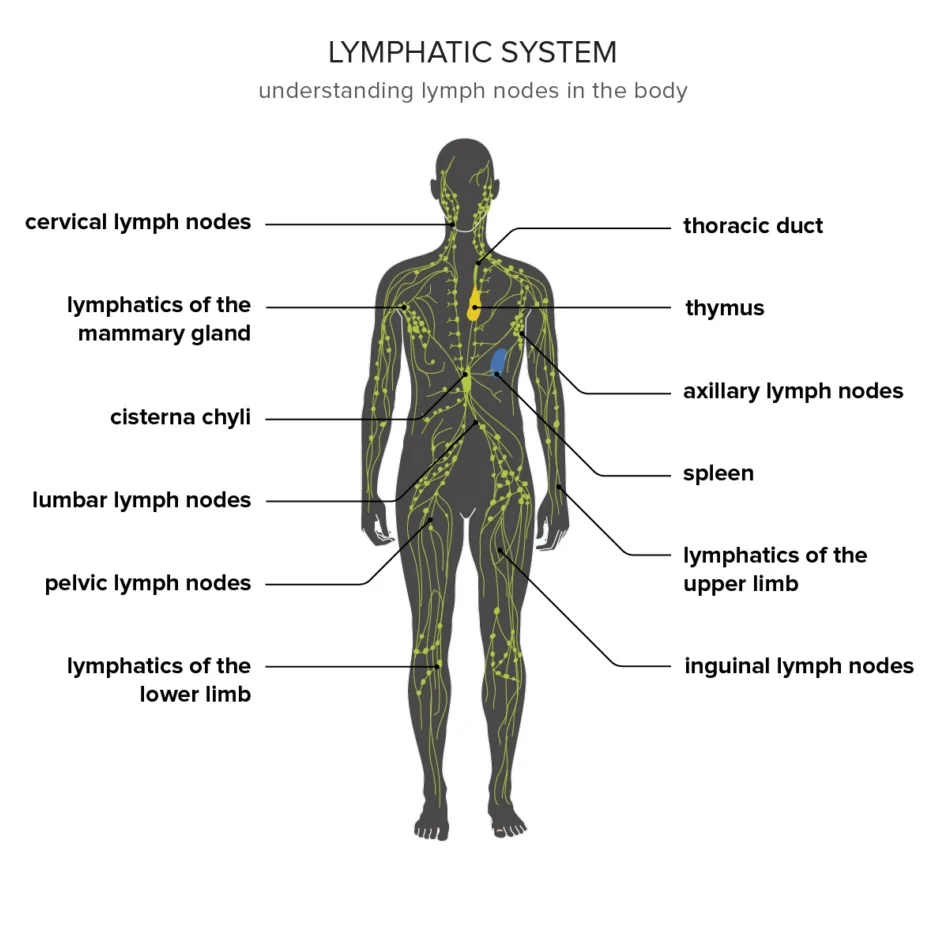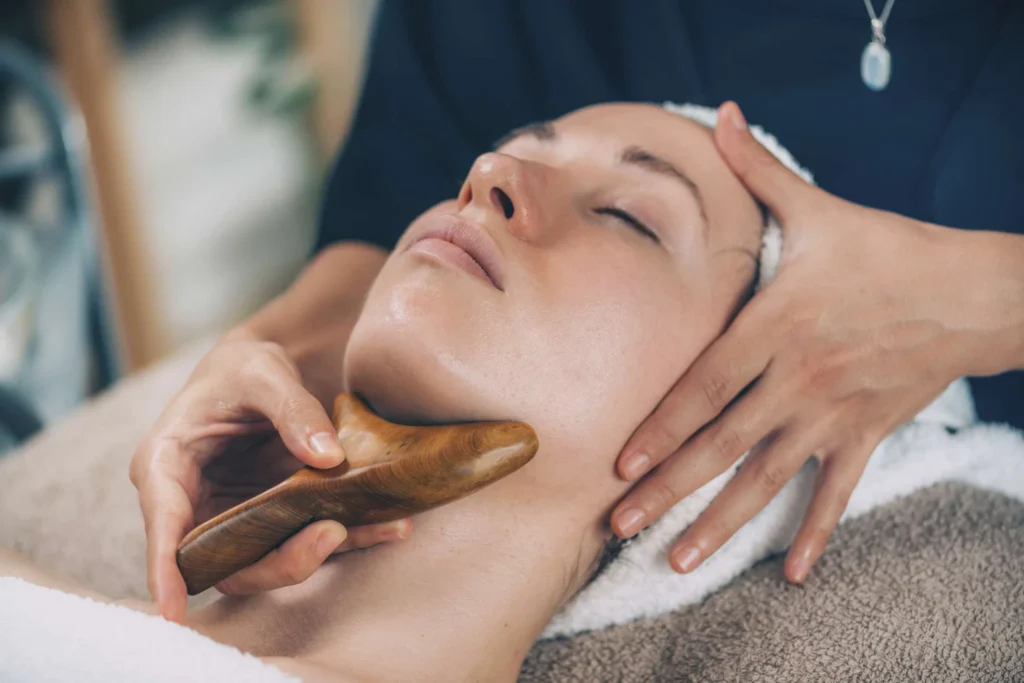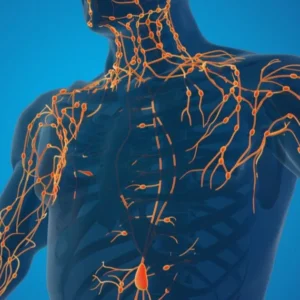Learn the Role of the Lymphatic System in Hair Loss
In the search for a full head of hair, the role of the lymphatic system may not be the first thing that comes to mind. However, recent research has shed light on the intriguing connection between the lymphatic system and hair regrowth. Beyond its well-known function in immune response and fluid balance, the lymphatic system appears to play a pivotal role in maintaining scalp health and stimulating hair follicle growth. Understanding how the lymphatic system influences hair regrowth could offer new insights into effective strategies for revitalizing your mane and achieving thicker, fuller hair. Learn the relationship between the lymphatic system and hair regrowth. Uncover the potential mechanisms by which lymphatic health can promote a healthier scalp and stimulate the growth of new hair follicles.
UNDERSTANDING THE LYMPHATIC SYSTEM
The lymphatic system is a crucial component of the body’s immune system, playing a vital role in maintaining overall health and well-being. Comprising a network of vessels, nodes, and organs, the lymphatic system works in tandem with the circulatory system to transport lymph, a clear fluid containing white blood cells, throughout the body. Unlike the cardiovascular system, which uses the heart to pump blood, the lymphatic system relies on muscle contractions and breathing movements to propel lymph through its vessels.

One of the primary functions of the lymphatic system is to regulate the body’s immune response. Lymphatic vessels collect excess fluid, proteins, and waste products from the body’s tissues and transport them to lymph nodes, where immune cells such as lymphocytes and macrophages help identify and eliminate pathogens, toxins, and foreign substances. This process helps protect the body against infections and diseases, playing a critical role in immune surveillance and defense.
In addition to its role in immune function, the lymphatic system also plays a crucial role in removing waste products and maintaining fluid balance within the body. Lymphatic vessels absorb excess fluid and cellular debris from the interstitial spaces between cells and return it to the bloodstream via the lymphatic circulation. By removing waste products and excess fluid, the lymphatic system helps prevent tissue swelling and maintains proper fluid balance, ensuring optimal function of organs and tissues throughout the body.
Furthermore, the lymphatic system serves as a pathway for the transportation of immune cells, hormones, and nutrients, facilitating communication between different parts of the body and supporting various physiological processes. Overall, the lymphatic system plays a multifaceted role in maintaining overall health, regulating the immune response, removing waste products, and maintaining fluid balance, highlighting its importance in supporting the body’s natural defense mechanisms and promoting optimal health and well-being.
THE LINK BETWEEN INFLAMMATION AND HAIR LOSS
The link between inflammation and hair loss is a topic of growing interest in dermatology and hair research. Inflammation, characterized by redness, swelling, and heat, is the body’s natural response to injury or infection. While inflammation is an essential part of the immune response, chronic or excessive inflammation can have detrimental effects on hair follicles and lead to hair loss.
Inflammatory scalp conditions, such as scalp psoriasis, seborrheic dermatitis, and folliculitis, can disrupt the normal functioning of hair follicles and contribute to hair loss. These conditions often involve inflammation of the scalp skin, which can cause itching, flaking, and discomfort. Over time, chronic inflammation can damage hair follicles, leading to miniaturization and eventual hair loss.
The lymphatic system plays a crucial role in regulating inflammation and immune responses throughout the body, including the scalp. Lymphatic vessels collect excess fluid, proteins, and immune cells from the scalp tissues and transport them to nearby lymph nodes, where immune cells help identify and eliminate pathogens and foreign substances. By regulating the inflammatory response, the lymphatic system helps maintain scalp health and prevent excessive inflammation that could damage hair follicles.
Moreover, recent research suggests that lymphatic vessels may play a role in transporting immune cells and signaling molecules to the hair follicles, where they modulate inflammation and support hair growth. Dysregulation of the lymphatic system or impaired lymphatic circulation in the scalp could contribute to inflammatory scalp conditions and exacerbate hair loss. Understanding the role of the lymphatic system in regulating inflammation and immune responses in the scalp could offer new insights into the mechanisms underlying hair loss and inform the development of targeted therapies for inflammatory scalp conditions and associated hair loss.
EXPLORING LYMPHATIC CIRCULATION IN THE SCALP
Recent research has shed light on the intriguing role of lymphatic circulation in the scalp and its potential implications for hair follicle health and hair regrowth. Lymphatic vessels, which form an extensive network throughout the body, including the scalp, are primarily responsible for transporting lymph, a clear fluid containing immune cells and other components, to lymph nodes for filtration and processing. While the role of lymphatic vessels in the scalp has traditionally been less understood compared to other parts of the body, emerging evidence suggests that they may play a crucial role in supporting hair follicle function and promoting hair regrowth.
Studies have shown that lymphatic vessels in the scalp may be involved in the transport of immune cells and growth factors to the hair follicles, where they exert beneficial effects on hair growth and follicle health. Immune cells, such as lymphocytes and macrophages, help regulate inflammation and tissue repair processes in the scalp, which are essential for maintaining optimal conditions for hair growth. Additionally, growth factors, including vascular endothelial growth factor (VEGF) and insulin-like growth factor-1 (IGF-1), stimulate cell proliferation and promote blood vessel formation, supporting the growth and development of hair follicles.
Enhanced lymphatic circulation in the scalp could facilitate the delivery of immune cells and growth factors to the hair follicles, promoting a favorable microenvironment for hair regrowth. By modulating inflammation, supporting tissue repair, and stimulating blood vessel formation, lymphatic vessels may play a critical role in rejuvenating dormant or miniaturized hair follicles and promoting the growth of new hair. Moreover, improving lymphatic circulation in the scalp through techniques such as scalp massage or specialized treatments could represent a promising therapeutic approach for individuals experiencing hair loss or thinning.
Overall, the emerging understanding of lymphatic circulation in the scalp and its potential role in hair follicle health and hair regrowth highlights the importance of further research in this area. By elucidating the mechanisms underlying lymphatic function in the scalp and exploring novel therapeutic strategies to enhance lymphatic circulation, researchers may unlock new opportunities for addressing hair loss and promoting healthy hair growth.
THE POWER OF LYMPHATIC HEALTH FOR HAIR REGROWTH
Optimizing lymphatic health could offer promising benefits for supporting hair growth and maintaining a healthy scalp. By enhancing lymphatic circulation and promoting immune function in the scalp, individuals may be able to create a more favorable environment for hair follicle health and rejuvenation. Here are some potential strategies for optimizing lymphatic health to support hair growth:

- Scalp Massage:
- Scalp massage stimulates lymphatic circulation in the scalp, promoting the drainage of excess fluid and toxins while increasing blood flow to the hair follicles. This can help nourish the follicles and support healthy hair growth.
- Exercise:
- Regular physical activity, such as aerobic exercise or yoga, can improve lymphatic circulation throughout the body, including the scalp. Exercise helps stimulate muscle contractions and breathing, which in turn facilitate the movement of lymphatic fluid and promote detoxification.
- Hydration:
- Drinking an adequate amount of water is essential for maintaining optimal lymphatic function. Adequate hydration helps keep lymphatic fluid flowing smoothly and supports the removal of waste products from the body, including the scalp.
- Healthy Diet:
- Consuming a balanced diet rich in fruits, vegetables, lean proteins, and healthy fats provides essential nutrients and antioxidants that support lymphatic health. Foods high in vitamin C, vitamin E, and omega-3 fatty acids can help reduce inflammation and promote lymphatic function.
- Stress Reduction:
- Chronic stress can impair lymphatic function and contribute to inflammation, which may negatively impact hair growth. Practicing stress-reducing techniques such as meditation, deep breathing exercises, or mindfulness can help support lymphatic health and promote relaxation.
- Dry Brushing:
- Dry brushing involves using a natural-bristle brush to gently massage the skin and stimulate lymphatic circulation. Dry brushing the scalp can help exfoliate dead skin cells, improve circulation, and encourage lymphatic drainage.
- Herbal Supplements:
- Certain herbs and supplements, such as echinacea, astragalus, and turmeric, have been traditionally used to support immune function and lymphatic health. Incorporating these supplements into your daily routine may help optimize lymphatic function and support hair growth.
By incorporating these strategies into your lifestyle, you can support lymphatic health and create an environment conducive to healthy hair growth and scalp function.
CONCLUSION
The lymphatic system emerges as a fascinating yet underexplored aspect of hair health and regrowth. Through its intricate network of vessels and nodes, the lymphatic system plays a multifaceted role in regulating inflammation, immune responses, and fluid balance throughout the body, including the scalp. Recent research suggests that optimizing lymphatic circulation in the scalp could promote a healthier environment for hair follicles, supporting their growth and rejuvenation. By understanding the connection between lymphatic health and hair regrowth, individuals can explore new avenues for addressing hair loss and promoting scalp health. Incorporating strategies to optimize lymphatic function, such as scalp massage, exercise, hydration, and stress reduction, may offer promising benefits for supporting hair growth and maintaining a vibrant mane. As research in this field continues to evolve, unlocking the potential of the lymphatic system could pave the way for innovative approaches to hair care and restoration.
SHOP FOR HAIR LOSS TREATMENTS


